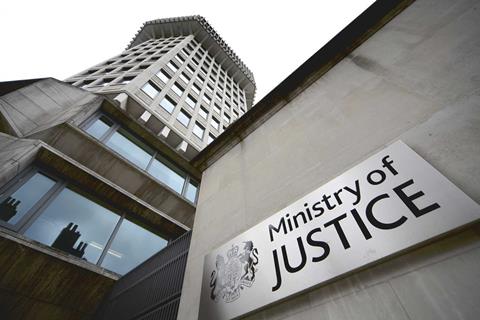Probation officers will be given greater powers to create ‘restriction zones’ banning serious sexual and violent offenders from larger areas to protect victims under new plans.
Primary legislation will be required to introduce the new powers and the government hopes to introduce this ‘as soon as parliamentary time allows’, the Ministry of Justice said.
Currently, judges can impose restrictions on if an offender can enter an area, road, or come into contact or proximity with their victim. Bail conditions can also see judges order defendants to not enter a certain area or come into contact with the alleged victim.
The government said the restriction zones would be a ‘brand new power’ for the probation service in which it can provide a list of places those convicted of the most serious sexual and violent crimes can enter, rather than those they are banned from.
The restriction zones ‘go further and instead limit the movement of offenders, who are confined to an agreed area, allowing victims to travel anywhere else without fear of meeting their offender’, it added. The aim is that restriction zones will limit offenders to specific areas and not their victims. Those given restriction zones will likely face more prison time should they intentionally breach restrictions.
Probation officers will conduct detailed risk assessments and work with victims on the creation of the zones to ensure they prevent contact and give victims the ‘maximum freedom’ to rebuild their lives.

Read more
Wider reforms throughout the probation system will see tens of thousands more offenders tagged and ‘at least’ 1,300 new trainee probation officers recruited next year. New technology is also being introduced to ‘lighten the administrative burden’ and free up time for workers to effectively supervise offenders.
In June this year, chancellor Rachel Reeves announced the probation service would receive £700m in extra funding per year by 2028/29. She said this was to help ‘deliver the transformative reforms’ recommended in former lord chancellor David Gauke’s independent sentencing review, she said at the time.
Minister for victims and tackling violence against women and girls Alex Davies-Jones MP said: ‘This move will strengthen safeguards for victims. I’ve heard firsthand how this innovative approach will give them the peace of mind they deserve and rebuild their lives without fear.’
Diana Parkes and Hetti Barkworth-Nanton, co-founders of domestic abuse charity The Joanna Simpson Foundation, campaigned for the use of restriction zones and described the ‘much-needed change that has long been called for’ as a ‘powerful step forward’.
They said: ‘For far too long, victims have had to reshape their lives to avoid their offenders. Exclusion zones have made victims feel trapped as though they are the ones serving a sentence, with the victim carrying the weight of someone else’s crime. By placing restrictions on offenders instead, this will now give survivors the freedom they deserve to live, move and heal without fear. It will also be more cost-effective for those monitoring the perpetuators as they will be locked in specific areas rather than having to monitor the exclusion zones where the victims live.’
Other changes will include increased tagging of 'domestic perpetrators', requiring judges to flag domestic abuse at sentencing, expanding specialist domestic abuse courts and improving transparency for victims at sentencing, including providing copies of judges’ sentencing remarks.
This article is now closed for comment.



























3 Readers' comments